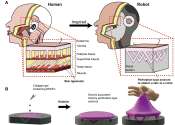A drug, broadly speaking, is any substance that, when absorbed into the body of a living organism, alters normal bodily function. There is no single, precise definition, as there are different meanings in drug control law, government regulations, medicine, and colloquial usage.
In pharmacology, Dictionary.com defines a drug as "a chemical substance used in the treatment, cure, prevention, or diagnosis of disease or used to otherwise enhance physical or mental well-being." Drugs may be prescribed for a limited duration, or on a regular basis for chronic disorders.
Recreational drugs are chemical substances that affect the central nervous system, such as opioids or hallucinogens. They may be used for perceived beneficial effects on perception, consciousness, personality, and behavior. Some drugs can cause addiction and habituation.
Drugs are usually distinguished from endogenous biochemicals by being introduced from outside the organism.[citation needed] For example, insulin is a hormone that is synthesized in the body; it is called a hormone when it is synthesized by the pancreas inside the body, but if it is introduced into the body from outside, it is called a drug.[citation needed]
Many natural substances such as beers, wines, and some mushrooms, blur the line between food and drugs, as when ingested they affect the functioning of both mind and body.









